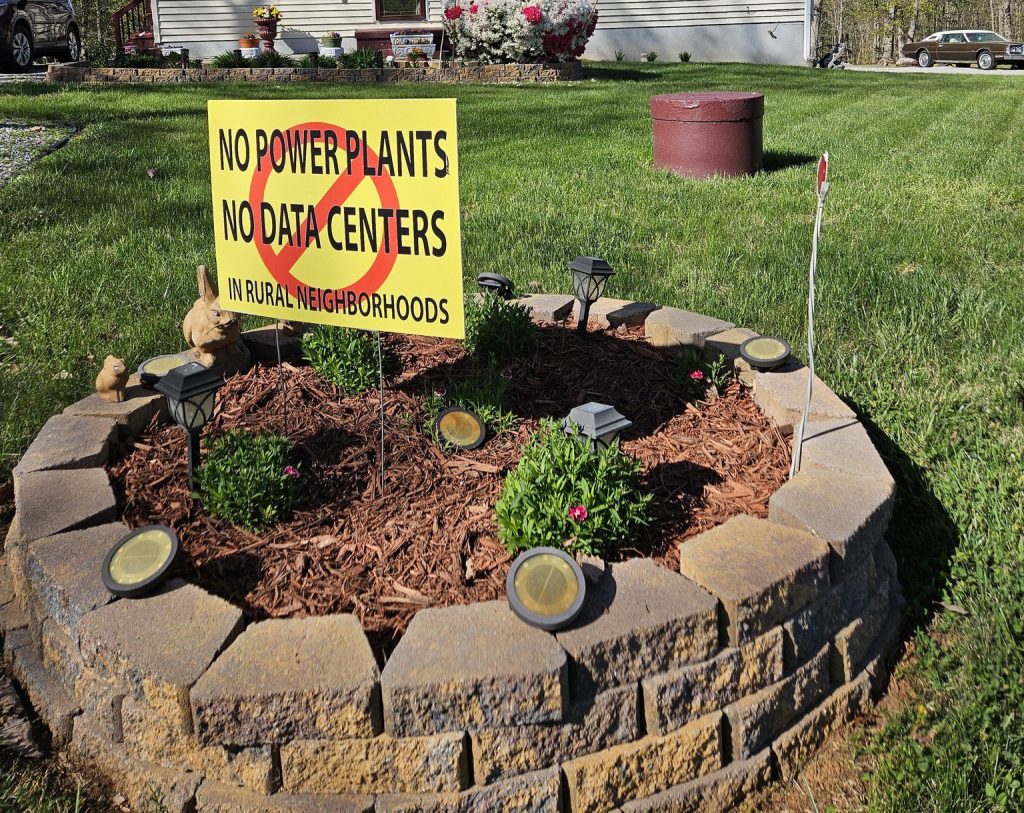Tobacco Farmers Go Organic, Join Forces With Enviros
Martin Miles has been farming tobacco in southwest Virginia since he was 6 years old. At 60, he’s trying something new – organic produce.
While tobacco allotments — the amount of tobacco a given farm is allowed to grow — in southwest Virginia have been declining, the national market for organic produce and meat has been growing by 20 percent every year for the past decade, according to the federally-accredited Florida Organic Growers’ Association, a non-profit corporation that certifies organic farms.
Miles’ own experience supports those numbers. “I used to get 80 to 100,000 pounds of tobacco out of my land,” he says. “This year I grew 10,000 pounds.”
To supplement their incomes, some tobacco farmers in far southwest Virginia have joined an uncommon alliance of environmentalists, weekend gardeners and economic development specialists to create an ecologically-friendly, locally-based agriculture cooperative called Appalachian Harvest. The cooperative is supported by a non-profit group called Appalachian Sustainable Development.
ASD is based in Abingdon, Va., and helps area organic farmers collectively bargain with big-chain food stores and other potential vegetable buyers. So far, the farmers, with help from ASD, have struck deals with Food City, a large, regional grocery store chain; Rockville, Md.-based Whole Foods Market, one of the biggest organic food retailers in the United States; and Richmond-based Ukrops, a large, family-owned chain grocery with stores all over central Virginia.
All together, Appalachian Harvest provides organic produce and a small amount of organic meat to over 100 stores, ASD executive director Anthony Flaccavento says.
But the first few years were lean for the growers. Miles says the whole network made $39,000 at the end of the first year of production. This year they may make as much as $500,000. Still most of the growers are highly diversified to spread their economic risk. Like Miles, some of them still grow a little tobacco. Miles also maintains a herd of 225 meat goats.
This year Miles was honored by the Abingdon-based Coalition for Jobs and Environment for “inspiring work toward healthy farmland, clean streams and stronger rural communities.” He has served as a spokesman for organic farming among traditional farmers in his area. He’s in it for his grandson, he says. “I want him to have clean water and be able to stay home and make a living.”
And Miles also proselytizes about communities supporting their own farmers and businesses. He walks his talk. Miles recently donated his old tobacco barn to Appalachian Harvest, and ASD secured grant money from the Virginia Tobacco Commission to convert the building into a processing plant for the growers. About 200 people attended the grand opening of the facility on July 20.
But even in the midst of such success, it’s not easy to grow organic produce. Nearing retirement age, Miles finds himself putting in long days, usually seven days a week, to keep the operation going. And he, along with many of the 30-plus growers in the network, worries about the future of Appalachian Harvest. On Oct. 1 federal regulations for organic farming will take effect.
The National Organic Program was passed to ensure that consumers get what they pay for when they buy produce labeled as organic, according to the Florida Grower’s Association. Before the federal regulations were passed, each state could draw up its own standards for organic growers.
Some states had what some consider very lax standards for their organic growers, says Angela Caudle, director of certification services for FGA. Virginia, for example, allowed organic growers to use treated sewage as fertilizer for their crops. The federal regulations will ban such practices and create a level playing field for consumers and farmers across the country, Caudle says.
John Mullins, an Appalachian Harvest grower, helps other farmers in the network apply for their organic certifications. He’s worried that the federal application process will be significantly more complicated, and that the costs of certification will make it hard or impossible for ASD to recruit and keep organic growers.
“Under the Virginia rules, farmers had to [let land lay fallow] for a year before they could be certified,” Mullins says. “Under the federal regulations, it has to be clean for three years. That’s hard because most farmers only have so many acres.”
Other than the three-year rule, much will remain the same for the Appalachian Harvest growers, Caudle says. The certification fees will remain the same, about $150 for 100 or fewer acres, but there will be additional fees tacked onto that sum, including inspection fees averaging $250 and an assessment of $50 for every $10,000 of gross sales.
“It’s going to make a lot of our farmers mad,” Flaccavento says. Caudle says there is competition in the organic certification industry, so if farmers aren’t happy with the fees they get with one certifier, they can shop around.
The standards will remain much the same as well, with few changes in store for Virginia organic growers, Caudle says. Traditional fertilizers, fungicides, bug sprays and weed killers have always been strictly prohibited. And that’s been another problem for the growers, getting the approved additives, such as fish emulsion fertilizer.
ASD acts as a supplier of organic farming products for the network growers, but it’s a business Flaccavento “would love to get out of,” he says, because it always runs in a deficit and drains time, energy and money from the main goal of the organization, sustainable economic development.
Using organic methods to grow food for traditional markets is quite a challenge, according to Mullins. “It’s much harder for me to grow a pretty tomato,” he says. “My weed control is a Mexican with a weed eater.” Appalachian Harvest’s farmers use a lot of immigrant labor, mostly Mexicans who speak little or no English.
Mullins says he employs between two and four migrant workers at the beginning and end of the season, but he can employ as many as 24 at peak season. The pay for migrant workers fluctuates “depending on what kind of work has to be done,” he says. During the spring, workers are paid by the hour; during harvest season, they are paid by the number of boxes or rows they harvest per day.
Flaccavento points out that working on organic farms is healthier for all farm workers. There are fewer toxic chemicals in the air, soil and plants, he says.
There’s also the problem of what to do with lower-grade produce that mainstream grocers won’t buy. This fruit is usually perfectly edible but has a blemish or is misshapen. Miles calls this produce “cull,” and says a substantial amount of a crop can end up as cull. ASD is working to find outlets for that produce, such as nearby prisons, colleges
Related Articles
Latest News

Leave a comment
Your email address will not be published. Required fields are marked *




